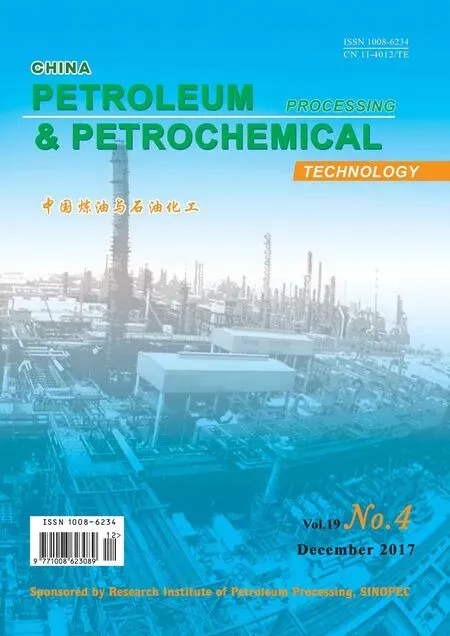Two Technologies Relating to Methylation of Benzene and Toluene with Methanol to Produce PX Developed by Shaanxi Coal and Chemical Group Passed Technical Appraisal
2017-01-17
Two projects including “New technology for manufacture of paraxylene via reaction of toluene and methanol with co-production of low-carbon olefins” and “Technology for selective alkylation of benzene with methanol to manufacture PX” undertaken independently by the Engineering Center of Shaanxi Coal and Chemical Technology Institute have passed the appraisal inspection of scientific achievements sponsored by the China Petroleum and Chemical Industry Association.
The technology for manufacture of paraxylene via reaction of toluene and methanol with co-production of low-carbon olefins is a new process developed on the basis of the previously developed technology for manufacture of PX in the fluidized bed (the first-generation technology). The work for developing the relevant catalyst was officially launched in 2013, and the pilot scale development work was carried out in 2015, with the catalyst being operated for 1128 hours in a pilot unit in the period spanning from April to October,including a 72-hour inspection and calibration test. Upon using an average feed rate of 1.04 t/day for both of toluene and methanol, the once-through conversion rate of toluene reached 51.77% (by weight), which was more than twice the value achieved by the first-generation technology, while the once-through conversion rate of methanol reached 98.94%(by weight) and the PX selectivity was equal to 85.73%(by weight). Currently this technology was granted the first set of technical approval documents, with the design of commercial unit being in progress.
In order to broaden the availability of feedstock for producing PX, the Shaanxi Coal and Chemical Technology Institute has commenced in 2013 the study on technology for manufacture of PX via selective alkylation of benzene with methanol. The research team after having successfully developed catalyst with an outstanding performance coupled with repeated process investigation has conducted pilot test of this process continuously in 589 hours in April 2016, including a 72-hour on-site inspection and calibration test. Upon using an average feed rate of 0.73 t/day for both of benzene and methanol,the once-through conversion rate of benzene reached 69.87% (by weight), and the once-through conversion rate of methanol reached 99.21% (by weight), with the PX selectivity equating to 81.62% (by weight).
Since the above-mentioned two technologies can give higher once-through yield of PX, under the same production capacity, the new technologies are characteristic of shorter process flow diagram, lower energy consumption and less capital investment cost,as compared to the traditional petrochemical route for manufacturing PX.
杂志排行
中国炼油与石油化工的其它文章
- Synthesis and Tribological Properties of Graphene-Copper Nanoparticle Composites as Lithium Grease Additive
- Emission-Reductive and Multi-Objective Coordinative Optimization of Binary Feed for Atmospheric and Vacuum Distillation Unit
- A pH Model for Calculating the pH Value of Mixed–Acid–Base Equilibria of Overhead Condensing Systems in Crude Distillation
- Simultaneous Biological Removal of p-Cresol, Sulfide and Nitrate by Denitrification
- The Effects of Ultrasonic Treatment on the Molecular Structure of Residual Oil
- Degradation of Nitrobenzene Wastewater via Iron/Carbon Micro-electrolysis Enhanced by Ultrasound Coupled with Hydrogen Peroxide
